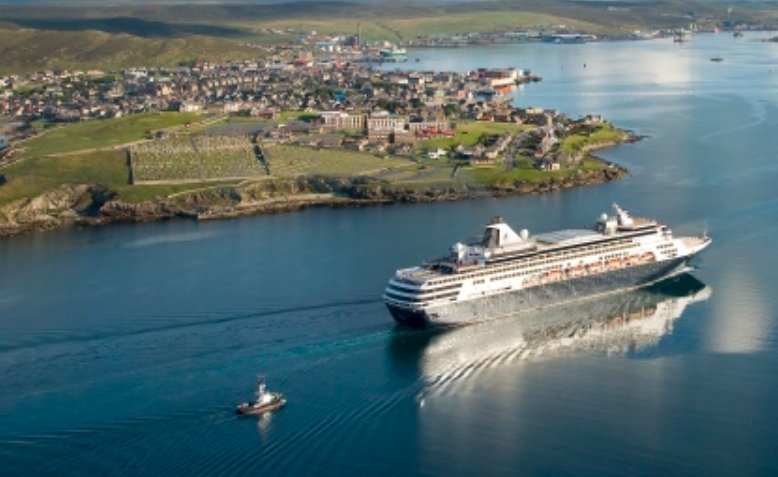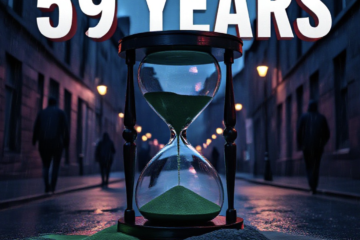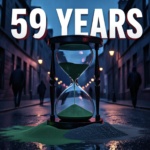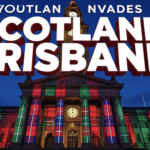Orkney Islands Council is calling on the Scottish government to allow a £5 point of entry fee for all tourists arriving by sea or air. This move aims to address the overwhelming strain from a tourism boom where visitors outnumber locals by 20 to one, funding vital infrastructure to protect ancient sites and ease daily life for residents.
The Boom in Orkney Tourism
Orkney has seen a massive rise in visitors over recent years, turning the islands into a top spot for cruise ships and history lovers. In 2024 alone, more than 214,000 people stepped off cruise ships onto the islands, drawn by world famous neolithic treasures like Skara Brae and the Ring of Brodgar. Add in another 173,000 arrivals by ferry and plane, and the total hits around 450,000 visitors each year, compared to just 22,000 locals.
This surge brings economic perks, with Kirkwall buzzing from new shops selling artisan jewelry, whisky, and even sushi. Yet it also creates real headaches. Narrow roads jam up with coaches, public buses struggle to keep up, and fragile historic paths wear down fast from foot traffic. At one key site, the Ring of Brodgar, officials had to fence off parts due to erosion, halting access for months.
Local leaders point out that cruise traffic has jumped over 200 percent in the last decade. Ships from the US, Germany, and Italy dock regularly, unloading thousands at once. While this boosts local spending on tours and crafts, the islands lack enough facilities to handle the crowds smoothly.

Details of the Proposed £5 Levy
The council wants a simple flat fee of £5 for every visitor entering by boat or air, tacked onto fares from cruise lines, ferry operators, and airlines like Loganair. This point of entry approach would hit all arrivals equally, from day trippers on massive liners to families flying in for a stay. Orkney has teamed up with councils in Shetland and the Western Isles to press the Scottish government for laws to make this possible.
Experts estimate the levy could pull in about £2 million a year after covering admin costs. That cash would go straight to building more toilets, coach parking areas, walking paths, and even a new visitor center near major attractions. Projects like these tie into a bigger UK and Scottish funded islands growth deal, but they face delays because of rules around historic monuments.
One big plus locals see is fairness. Unlike taxes on hotel stays, this fee would not burden small businesses or scare off overnight guests. It targets the sheer volume of short stop visitors who use services but often spend less time and money locally. Council officials stress that the goal is sustainable growth, not turning people away.
Voices from Locals and Experts
Residents and business owners in Orkney have mixed feelings, but many back the idea as a way to share the load. Martin Fleet, who runs a jewelry firm and chairs the local tourism group, says the islands must protect their treasures for everyone. He notes that small places like Orkney draw crowds for unique sites, but without smart management, future generations could lose out.
Christie Hartley, who manages the councils sustainable tourism efforts, highlights the disconnect between cruise companies and island life. She points to problems like too few toilets, leading to awkward situations for visitors and locals alike. Hartley believes better infrastructure would help operators offer premium experiences, letting them charge more while keeping communities strong.
Councillor Kristopher Leask adds that modern travelers care about eco friendly spots. He sees the levy as a chance to build ties with cruise firms and create a system that works for all. On social media and forums, some past visitors from abroad say they would gladly pay the fee to help preserve the islands beauty.
- Key benefits locals mention include funding for erosion control at neolithic sites.
- It could ease pressure on public transport during peak seasons.
- The fee promotes equal treatment for all tourist types.
- Revenue might support new paths that reduce damage from off trail walking.
Challenges and Opposition to the Plan
Not everyone agrees the levy is the right fix. Cruise industry groups warn it could chase away passengers, hitting Scotlands coastal economies hard. With 1.2 million cruise visitors nationwide each year, they argue extra costs might make routes less appealing and harm the countrys image as a top destination.
Back in September, Orkney council scrapped plans for a five percent tax on overnight stays after strong pushback from businesses and residents. That idea was seen as unfair to hotels and campers, potentially driving away longer stay tourists who bring steady income. The new entry fee sidesteps that by focusing on arrivals, but some worry it still adds friction for budget conscious travelers.
Building support takes time too. The Scottish government is wrapping up a review on cruise specific fees for busy ports. Meanwhile, sites like Skara Brae already charge entry, but the levy would help with broader upkeep. Locals recall similar debates in other spots, where fees eventually balanced crowds without killing tourism.
How Orkney Compares to Other Scottish Areas
Scotland leads the way with tourist taxes, but approaches vary by region. Edinburgh kicks off the UKs first bed tax in July 2026, adding five percent to room rates for up to five nights. Cities like Aberdeen and Glasgow plan similar moves to fund local services amid high visitor numbers.
In contrast, island councils face unique hurdles. Shetland turned down a visitor levy outright, while the Western Isles hit pause, much like Orkney did earlier. These areas push for entry fees over stay based ones, arguing they better match the cruise heavy traffic.
Highland Council eyes a five percent accommodation levy that could raise £10 million yearly, but decisions come in December. Argyll and Bute also delayed plans after consultations showed low support. Orkneys proposal stands out for its flat rate and broad coverage, aiming to set a model for remote spots.
| Region | Levy Type | Rate | Start Date | Estimated Annual Revenue |
|---|---|---|---|---|
| Edinburgh | Bed tax on accommodations | 5% of room rate, capped at 5 nights | July 2026 | Not specified |
| Aberdeen/Glasgow | Bed tax on accommodations | 5% | Upcoming | Varies |
| Orkney (proposed) | Point of entry for arrivals | £5 flat fee | Pending legislation | £2 million |
| Shetland | None adopted | N/A | N/A | N/A |
| Western Isles | Paused | N/A | N/A | N/A |
This table shows how Orkneys idea differs, focusing on entry rather than stays to capture cruise impacts.
Future Outlook for Orkney Tourism
As talks heat up, Orkney balances its Viking heritage and stone age wonders with modern demands. Recent events, like the fencing at Ring of Brodgar, underline the urgency for action. If approved, the fee could roll out soon, tying into national efforts for greener travel.
Tourism here ties into broader Scottish trends, where millions flock yearly for scenery and history. Yet with funding gaps hitting £647 million, local levies offer a practical fix. Experts predict eco aware visitors will embrace such measures, seeing them as steps toward lasting preservation.
What do you think about this tourist fee idea for Orkney? Share your views in the comments below and spread the word by sharing this article with friends who love Scottish travel.


















